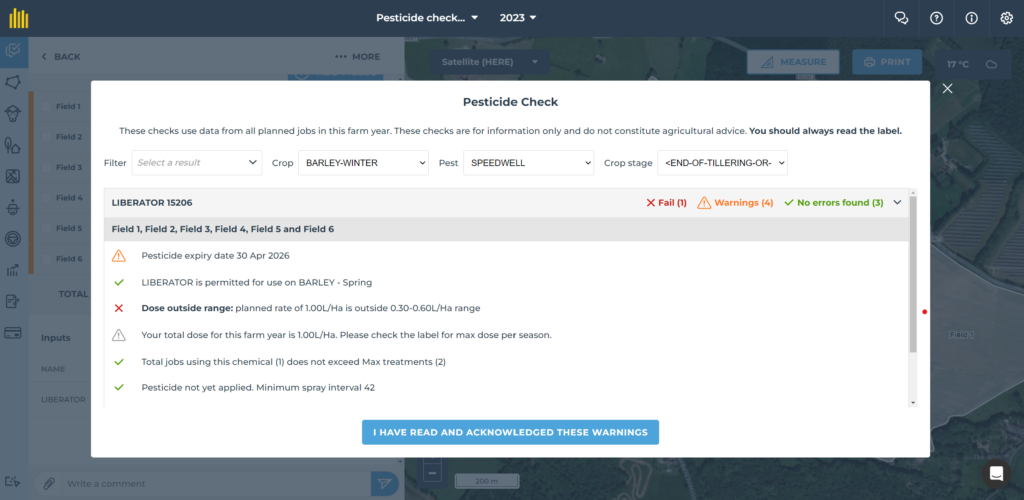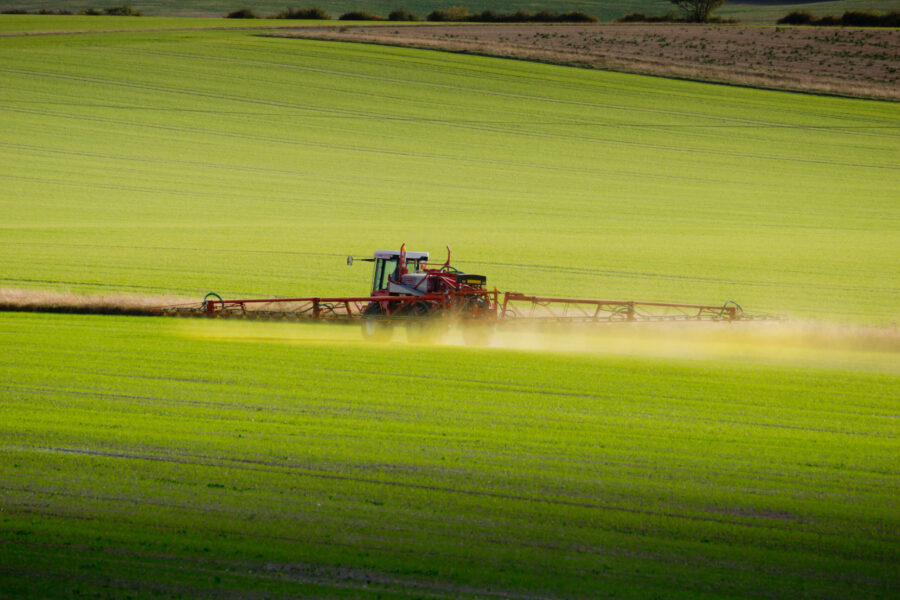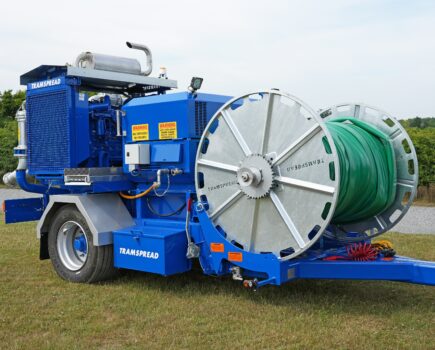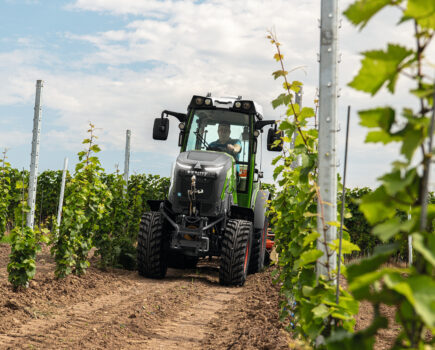Relief from the headache of pesticide compliance checks is the latest promise from farm management app fieldmargin.
The record-keeping and decision-support app has further expanded its feature list by incorporating a pesticide checking database, helping farmers and their agronomists to double-check that a proposed application meets current regulations.
“Despite the complexity underpinning it, we’ve made this an easy-to-use new feature that should make a lot of difference not only to the average time-poor grower but also improve communication and interaction between farmers and advisers,” says Camilla Hayselden-Ashby, fieldmargin’s Head of Product.
“It puts tools previously only available to the biggest farms and agronomy companies within affordable reach of the everyday grower.
“When you’re having to juggle weather windows, crop-walking, agronomist recommendations and paperwork, there’s always the risk of error.
“At worst, it could lead to costly crop damage or a fine, but even a relatively minor change to a label can result in loss of certification. It’s easy to overlook a label change, especially if chemical stock is carried over from a previous season.”
The fieldmargin app is built to make integration of multiple data sources simple and inexpensive to achieve, notes Ms Hayselden-Ashby. For Pesticide Check, the app interfaces with the latest data from Lexagri’s Homologa® database, the world’s largest crop protection product database with over 33 million entries. In the UK, that is supplemented by data from Fera.
Any crop protection recommendation for a crop – whether made by an agronomist or a BASIS-qualified grower – must consider factors such as the crop, the target pest or disease, the growth stage and the application history.
“Inputting the statutory recommendation prompts the app to perform a number of checks to check for any potential breaches of compliance,” explains Ms Hayselden-Ashby, “such as the product’s expiry date, whether it’s permitted for the target crop or variety, that the application rate is within the maximum dose, that maximum seasonal applications won’t be exceeded, and even advice on withholding periods and grazing re-entry, where appropriate.”
If there is an obvious compliance error, fieldmargin will return a result of ‘Fail’. A ‘Warning’ result prompts the user to conduct further checks, for example where there might be a disparity between a licence expiry and a use-up date, while ‘No error found’ indicates to the user that no breaches were identified.
“The app will never fully ‘green light’ a proposed application – the decision to go ahead always lies with the person responsible – but with all the information to which it has access, such as registrations, licensing, MRLs, expiration dates, actives, approved crops, doses and so on, its day-to-day use is very intuitive.
“Pesticide Check is a tool for the agronomist as much as the farmer,” she adds. “In our conversations with advisers and agronomy firms, the ability to use fieldmargin to check recommendations came up time and time again.
“Now we can smooth the process for agronomists, allowing them to add recommendations within fieldmargin itself, which can be checked off by the farmer – both have access to the same farm and field records.”
Ms Hayselden-Ashby stresses that the app is not intended to be a substitute for proper agronomic advice. “BASIS qualifications are always necessary to make pesticide recommendations. What the app does is to check that those recommendations don’t conflict in any way with the statutory label.”
Pesticide Check will be available to users with a Pro subscription, the level that also includes unlimited satellite imagery analysis. The app itself – with its ability to map a farm in just 30 minutes – is available to download for free.






